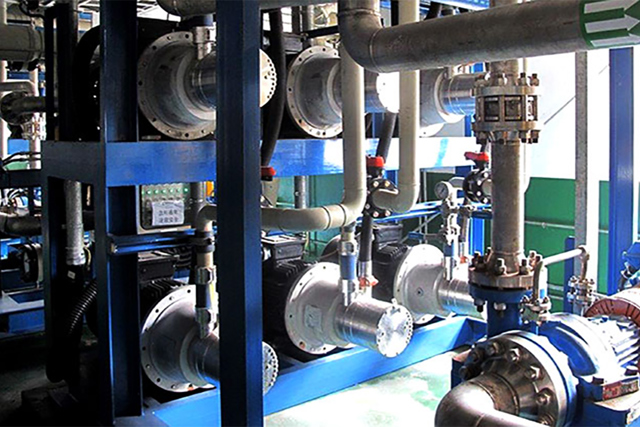Major energy savings and still running strong after 30,000 hours
The plant’s 12 Danfoss APP 24 pumps require 23% less electricity to run than fewer centrifugal pumps with a similar output would. This efficiency saves the JV 603,000 kWh – or approximately USD 74,000 at local energy prices – year in, year out.
Danfoss APP 24 pumps used in the SWRO plant
In addition to efficiency, two trains of six pumps running in parallel enable another of the plant’s key features: the redundancy it needs to deliver very high uptime. Even if one or more pumps in either train might be down or need maintenance, the system continues operation so a constant supply of fresh water is available for power production. In fact, since the Qingdao Sodash/Veolia plant came on line in 2009, each of its two trains has run for more than 30,000 hours with minimal maintenance.
Operating manager for the JV, S.B. Liu, is happy that pump reliability and efficiency are two things that he does not need to worry about.
“During four years of operation,” he explains, “only one of the 12 pumps has needed any service at all. While the dependability of Danfoss pumps minimizes the need for dundancy, it does not completely remove it. We are firm believers in multiple-train SWRO plants for dependable uptime. The energy efficiency and reliability of Danfoss axial piston pumps are an important part of our joint venture’s success."

